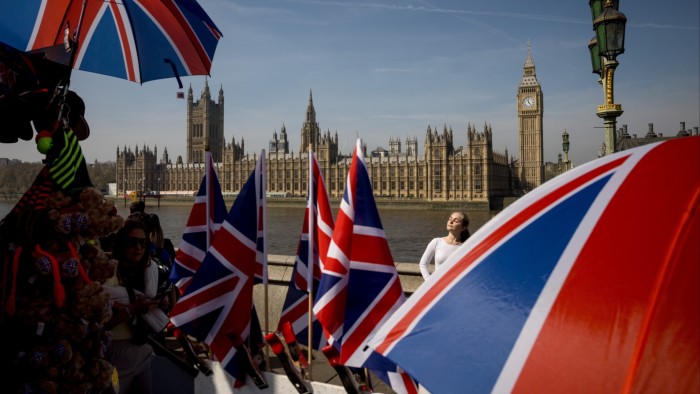Unlock the Editor’s Digest for free
Roula Khalaf, Editor of the FT, selects her favourite stories in this weekly newsletter.
It has become fashionable to express Eeyorish views on the state of the UK economy. But amid talk of rising debts and falling growth, there’s a more reassuring diagnosis: things are, at worst, solidly mediocre, and maybe not bad at all.
NatWest chief Paul Thwaite, who presumably has a good insight into the financial mood, told investors last month that growth in the UK was “subdued” and retail sales “reasonable”. Rivals Lloyds and Barclays gave similar messages. That might not be a glowing endorsement, but it reflects an encouraging direction of travel.

Take consumer confidence. It is almost a decade since the closely watched GfK index was in positive territory. But ask people how they feel about their own lot, rather than the economy more broadly, and the picture is much better. Expectations for personal finances over the next 12 months have been trending higher since the end of Liz Truss’s shortlived premiership in October 2022, and are above their 10-year average.
Households are also more willing than they were to make big purchases. Young people are particularly optimistic, the index shows. This shouldn’t be surprising. Inflation hit hard in 2022, but wages have now been rising faster than prices for more than two years.
The UK’s animal spirits may not be driven by record highs in the stock market, unlike the US where share ownership is more widespread. But the housing market is helping. Interest rates are falling, while various indices show prices rising.
This is filtering down to companies, with signs of higher demand for large discretionary purchases such as cars, kitchens and sofas. New car registrations jumped almost 14 per cent year on year in September, according to the Society of Motor Manufacturers and Traders. Yorkshire-based settee specialist DFS just reported its first year of revenue growth since 2022, with like-for-like orders up 10 per cent.
True, it’s easy to find places where things look decisively rosier. In the US, economic cheerleaders abound. But growth there has been propped up by massive artificial intelligence-related investments; economists at Pantheon Macroeconomics argue recent UK GDP growth, meanwhile, has been “well balanced” between investment, household and public spending.
And compared with some of its neighbours, the UK still stands favourably. Thierry Garnier, chief executive of B&Q owner Kingfisher, last month contrasted “resilient” British consumers with pessimism in France, where political uncertainty has had a greater impact.

As always, there is something of the Rorschach test about economic signals. NatWest’s Thwaite noted that one can “find what you want to find in the data”. Even as the Lloyds Bank business barometer shows elevated confidence, an Institute of Directors report claims managers have never been more worried. Inflation is too high, unemployment ticking higher, and the government may try to plug its budget hole with policies that hurt growth.
Still, investors could learn something from the US. Predictions of a recession from luminaries like JPMorgan chief Jamie Dimon failed to come true, for reasons economists still struggle to explain. But “never bet against consumers” has become a common refrain.
Optimism may not come quite so easily to Brits — especially with chancellor Rachel Reeves’ Budget still six weeks away — but there are positive signs for those inclined to seek them. The national sport of Britain-bashing may have gone too far.

